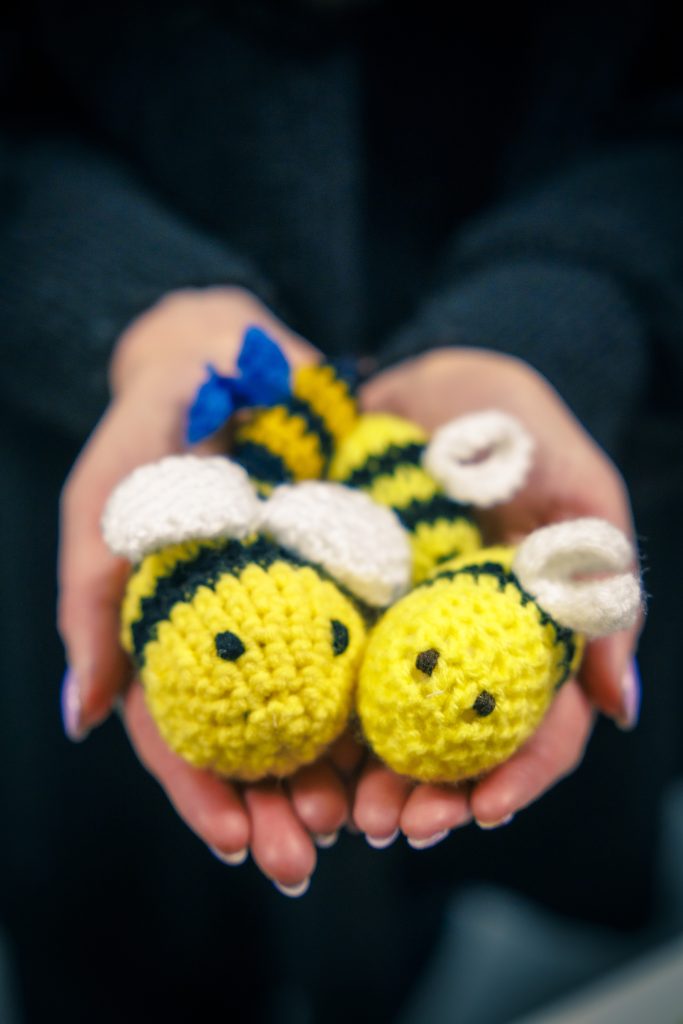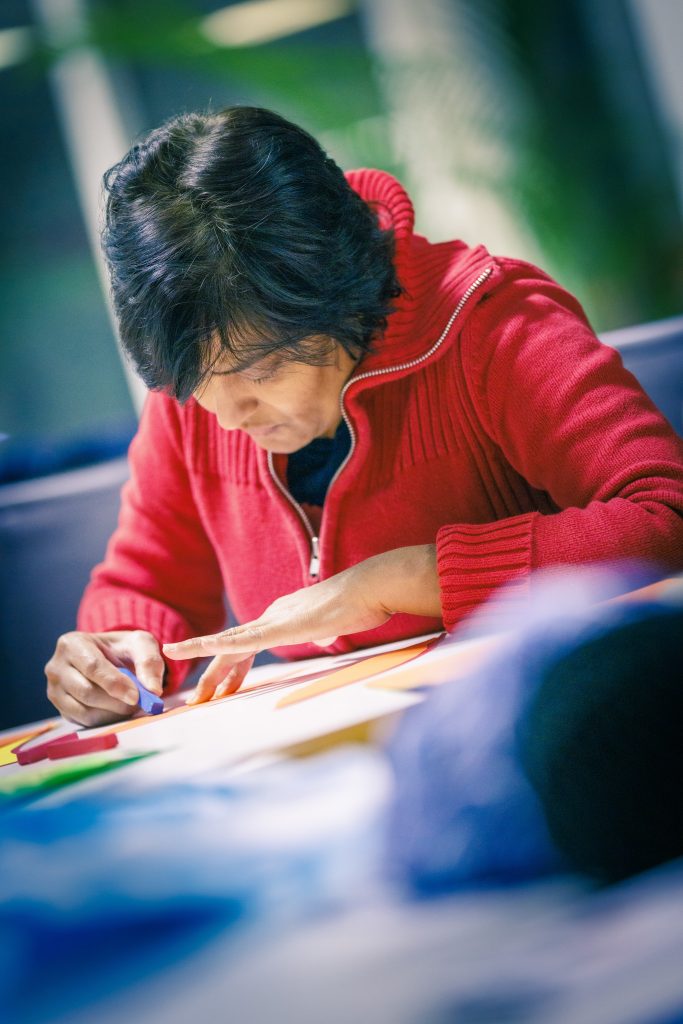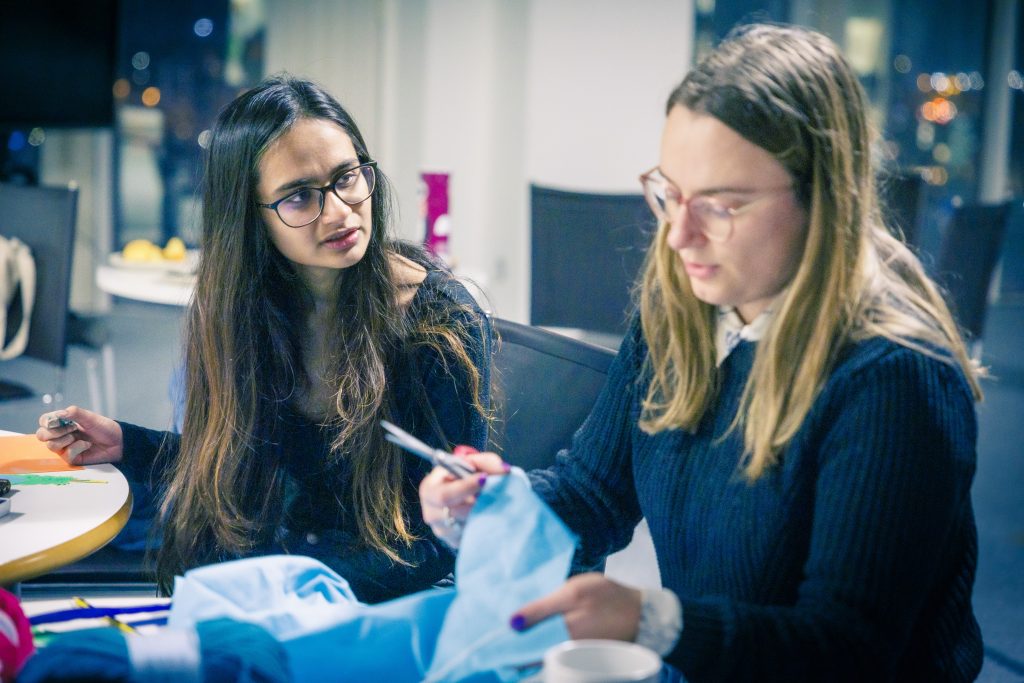Kerry recently met with Anna Bland (leedssanctuary.org.uk) to hear about her community organising experience.
Kerry: Anna, thank you so much for being willing to share some of your experiences in community organising. What would you like people to know about you?
Anna: I am Team Leader for Leeds Sanctuary, the Methodist Church project in Leeds City Centre, with no building or congregation. I have been in Leeds for a while now- I first came for University, and after working elsewhere for a while, I then came back, and I feel settled and at home here now.
I started Leeds Sanctuary with a vision around action and contemplation, seeing them as two sides of the same coin.

If we want to be change-makers in the world, then we need to look after ourselves through meditation, quiet, and practices of Celtic Christianity.
When the vision for Leeds Sanctuary was emerging, I listened right across the city – before I knew anything about organising! I met many people for what I would now call one-to-ones. I found out what was going on, what were the opportunities, what might be ours to do in this place. I also saw many activists burning out, becoming overwhelmed by the enormity of all of the injustice in our world. So I thought, I think there’s something in the idea of combining action with contemplation. We are now at a point where there is a little team of us and we’re running a range of communities across the city centre.
Kerry: And how did you find out about community organising?
Anna: It was a very slow process of osmosis! Because I actually had shared an office with the Leeds Citizens team from the start of developing Leeds Sanctuary. So I knew a bit about community organising just through conversation and relationship building. I just got increasingly interested in it. I was interested to know, what’s the Methodists role in this, now? Because we had been integral in starting Leeds Citizens, over 10 years ago. But then, our involvement ended, partly due to a change of personnel within the city. So it felt important to renew that relationship and now all the Methodists in the city have all joined together to be members of Leeds Citizens, and I’m the main Methodist representative in Leeds Citizens. This whole process of reconnecting was very slow- it has taken over three years to get to where we are now.
Kerry: Can you remember a particular moment where you thought this makes sense; this fits with my understanding of what it means to live out our calling to seek justice?
Anna: Yes, I do. One of the communities we run is the Leeds Craftivists, and we had been doing some really interesting creative campaigns. But we weren’t getting many ‘wins.’ I felt like our campaigns were a bit vague although they looked really good. And they were good in terms of community building, and shared learning. But we weren’t getting the campaign right to the point of making a change. I was speaking about this in the office with Becky one of the organisers, and she suggested some different things to try; they were all organising techniques, I now know. And they worked! I’m not saying we’ve had loads and loads of wins, but we’ve definitely started seeing more impact; we are connecting with politicians, for example, and other people who have power to change things. We were getting more where we wanted to be.

The organisers also asked me some agitational questions. I remember one of them asking me how long we campaigned on something for. We were doing quite ‘flash in the pan campaigns’ because we were meeting for a monthly session where we came, we learned something, and we did some craft. This organiser said, ‘So you’re not, you’re not trying to win?’ I realised we weren’t staying with an issue to the point where we might actually see a change.
That was really challenging- because I had never thought about that before, but they were right. We were going from one issue to the next without thinking about change. So those various little conversations have really led me to the point that I’m at now.
Kerry: Do you have a particular story or example that you can share?
Anna: I’ve got a couple! Last year, we did a biodiversity campaign. We crocheted and knitted little bees that we were then giving to the key decision makers on planting in the city centre. That was the campaign- because Leeds is a great city, but there’s not a lot of green space in the centre. In the city as a whole, we’ve got a lot, but in the city centre not so much. And you know, there’s the distinction between a dream and an achievable win?
A few of us in the group have read about biodiversity corridors and what those were, how they work. And we realized that there is the river on one side of the city and then a big park, but there’s nothing connecting them up so you have pockets of biodiversity. But we were thinking could you have a corridor? We felt that was the dream, in the long term. And the achievable win was to find out how we could work with people in the council to plant in small pockets of available space. So, through sending our bees and some letters and lots of research and asking various contacts that I had, we found out who the right person to talk to. We got permission to do some planting of wildflowers Our plan is to keep going back to check these, and keep caring for them, and to keep working towards the dream of a biodiversity corridor forming as the city develops. So, it’s not a one off action but something that continues. And already, , what we’ve noticed, and you can never know how linked these things – are but the planters across the city all look much better. They all have flowers, and just look healthier. It feels good to have been part of a small change, of making an improvement.
The campaign we are doing at the moment is also really interesting, because we are joining with the Leeds Citizens campaign to improve public transport in the city centre. It’s a well-known issue- the buses aren’t good and we have no metro or anything like that. . Because of the devolution deal that we have, this is one area that the Metro Mayor has quite a lot of influence on. So we’re making a big multi-coloured map of Leeds. And then we are asking community groups and ourselves as craftivists, and Citizens Alliance members, all those people, to make little buses with a message on them. And then we’re going to display that at various places strategically.
So that people who have the power to make change see what we want. What this campaign has taught me is about understanding partnership, finding your experts, and seeing who is already campaigning. That’s been a big learning for me, actually, to seek out who we can work alongside in building a campaign. So, watch this space; we’ll see what happens.

Kerry: What would you want people to know about organising? Especially the folks who are a bit unsure about it.
Anna – It’s all about relationships. I think, in my experience, some people find the idea of community organising scary, but actually, it’s just about having conversations an awful lot of the time. I can also see how it relates to the relationship-building element of Craftivism, where we always remain aware of the humanity of everyone involved – the people experiencing injustice and those we are sending the crafts to. I see so much synergy between those two ways of justice-seeking.
For me, it’s shifted my understanding of what bringing about change means. Organising has enabled me to think about the importance of understanding power and understanding the motivations of the people who have the power to create change.
Organising is something everyone can get involved with.

Leave a Reply